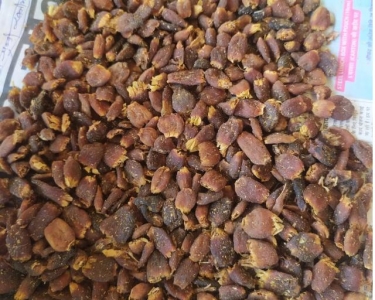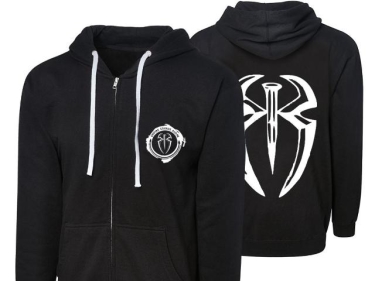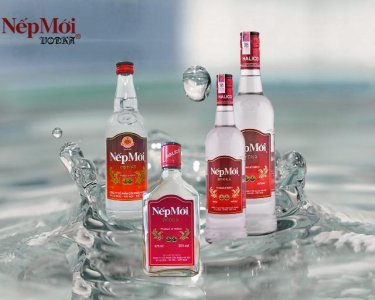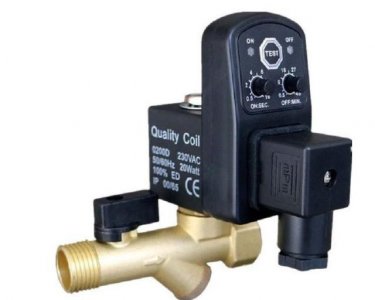Live animals
Couldn't find the product you want?
Fill out this form to request the product.
Products You May Like
Import to Luxembourg
Luxembourg is one of the smallest countries in Europe, and ranked 179th in size of all the 194 independent countries of the world; the country is about 2,586 square kilometres in size.
To the east, Luxembourg borders the German Bundesland of Rhineland-Palatinate and Saarland, and, to the south, it borders the French region of Lorraine.
Traditionally, Luxembourg imports most of the consumer goods and exports industrial products. The nation remains dependent on energy imports. Luxembourg main imports are: minerals, metals, foodstuffs and quality consumer goods. Luxembourg's main import partners are: European Union (Belgium, Germany, France, Netherlands) and China. The main imported goods in Luxembourg are fuels, foodstuffs, ores and metal, different consumer goods. The Grand Duchy continues to import manufactured consumer products, but its exports have become more diversified. Besides steel, exports now include chemical and rubber products, and finished glass, but the most profitable export is financial services. The nation remains dependent on energy imports.
Products imported by Luxembourg are:
- Refined Petroleum
- Cars
- Crude Petroleum
- Packaged Medicaments
- Human or Animal Blood
- Diamonds
- Vehicle Parts
- Nitrogen Heterocyclic Compounds
- Petroleum Gas
- Computers
Export from Luxembourg
Luxembourg, officially the Grand Duchy of Luxembourg, is a landlocked country in Western Europe. It is bordered by Belgium to the west and north, Germany to the east, and France to the south. Luxembourg had a population of 524,853 in October 2012 and has an area of 2,586 square kilometres, making it one of the smallest sovereign nations in Europe.
Luxembourg, sometimes poetically called the "Green Heart of Europe", is amongst the wealthiest countries in the world. The industries that bring Luxembourg its economic success are: banking, steel, telecommunications, agriculture and tourism. Luxembourg's economy success is also largely based on export trade.
Luxembourg is among few economically stable countries that exports in excess of fifty percent of its gross domestic product. Some other important names in this regard are Belgium, Netherlands, Slovakia, Austria, Hungary, Denmark, Ireland, Sweden and Czech Republic. Luxembourg has especially close trade and financial ties to Belgium and the Netherlands and as a member of the EU it enjoys the advantages of the open European market.
The main export commodities in Luxembourg are steel products, machinery and equipment, foodstuffs, diamonds, chemicals, other products. Luxembourg's main export partners are Germany, France and Belgium.
Today, other goods exported by Luxembourg are: beverages, tobacco, textiles, road vehicles and transport equipment and pharmaceuticals.
Luxembourg is the top exporter of Frozen Vegetables, Photographic Film, Iron Sheet Piling, Looms, Antifreeze, Zinc Oxide and Peroxide, Video Cameras, Hydrogen peroxide, Vegetable and Mineral Carvings, and Felt Carpets.
Top Luxembourg Exports:
- Refined Petroleum
- Cars
- Packaged Medicaments
- Diamonds
- Human or Animal Blood
- Vehicle Parts
- Ethylene Polymers
- Coated Flat-Rolled Iron
- Nitrogen Heterocyclic Compounds
- Propylene Polymers
Check Out Export Portal: A Site That Lets You Export Live Animals
If you are looking to buy and export animals, then you came to the right place! Export Portal's Live Animals Department is an online marketplace for sellers and buyers of any livestock. We work to contribute to the live export industry, which brings many economic advantages and other benefits to countries that rely heavily on livestock imports. In fact, in just Australia alone, this industry contributes roughly $1.8 billion to the country's GDP each year. Moreover, it also ensures food security while helping people meet their protein needs as well.
Finding the Right Animal
We feature a wide range of pigs, cows, sheep, goats, horses, rabbits and hares, turkeys, bees, and fish for sale. An increasing number of American, Australian, German, South African, Argentinian, and Italian farmers and companies are advertising their livestock with Export Portal, portraying just how effective and helpful our site is.
To help customers make more informed purchasing decisions, our site lets users narrow down their searches by the age, breed, and sex of the animal. If you are feeling hesitant to shop on our site and want more detailed information, make sure to check out our seller ratings and reviews, which are written by our buyers and customers. We also collaborate with hundreds of trusted international shipping companies that arrange the transport of all kinds of animals and birds to any country in the world.
Online Shopping is More Simple with Export Portal
Export Portal is an ideal site for everyone who is an avid online shopper. Our convenient options make it easy to find and buy whatever you are looking for. Our seller network from all over the world has everything you need, and our customer support team will make sure you can find it. Our wide assortment of products will be sure to provide you with the best shopping experience. Make sure to check out our site and items today!
Customs requirements of Luxembourg
Luxembourg Customs Contacts
Website: http://www.do.etat.lu/
Email: douanes@do.etat.lu
Address: 22, rue de Bitbourg, L-1273 Luxembourg
Postal Address: BP 1605, L-1016 Luxembourg
Telephone: +352 28182818
Fax: +35228189200
Luxembourg is a landlocked country in western Europe. The country is a founding member of the European Union, OECD, United Nations, NATO, and Benelux, reflecting its political consensus in favour of economic, political, and military integration. The city of Luxembourg, which is the country's capital and largest city, is the seat of several institutions and agencies of the EU. The economy of Luxembourg is largely dependent on the banking, steel, and industrial sectors.
Export/Import Tariffs
Luxembourg is part of the harmonised trade system of the EU and importing and exporting are covered by EC Regulations.
A Common External Tariff (CET) is applicable to other countries.
The European Community has created the Binding Tariff Information (BTI) system as a tool to obtain the correct tariff classification for goods for import or export. Before shipping any goods, it would be better to consult the Luxembourg Customs.
The Luxembourg Customs and Excise Agency (Administration des douanes et accises) is one of three tax authorities:
- Luxembourg Inland Revenue (Administration des contributions directes)
- Luxembourg Land Registration
- Estates Department (Administration de l’enregistrement et des domaines).
The Customs and Excise Agency is responsible for the collection of:
- customs duty (charged on imported goods)
- excise duty
- tax on motor vehicles (road tax disc - vignette fiscale)
- road and motorway tax for heavy goods vehicles (e-vignette)
- tax on licensed premises (taxe de cabaretage).
Trade with certain countries is forbidden or restricted in accordance with UN, EU or OSCE sanctions.
Product certification, labelling and packaging
Certification, labelling and packaging must meet EU requirements. For more information on current requirements, visit the European Union website.
Packaging
To reduce the impact on the environment, the EU has required legislation concerning the management of packaging and packaging waste. For more information, visit Product labelling and packaging
CE Mark
The CE mark is a mandatory conformity marking for certain products sold within the European Economic Area (EEA). For more information, visit CE marking.
Labelling
All labelling and information directives of the European Council must be met, as well as local and national regulations. Information on the labelling of products in the interest of consumers and compliance procedures are available at Summaries of EU Legislation.
Food information and labelling legislation must comply with EU legislation. For more information, visit EUR- Lex Food Safety.
For organic produce, EU legislation requires that imported organic food from third countries be produced to the same standards as that from or EU. For more information, visit ILNAS and OSQCA.
Special certificates
There are controls on a number of imported products. For more information, visit Luxembourg Import Declaration.
Documents for import/export
All goods shipped from outside the European Community to Luxembourg must have a Commercial Invoice and must contain or reference the following information:
- air waybill or bill of lading number
- shipper's full name, address and phone number
- complete delivery address if different from invoice address
- VAT number of the consignee
- INCOTERMS (Terms of Sale; if possible show freight and insurance charges separately)
- consignee's full name, address and phone number
- full and complete description of goods (including HS numbers if possible)
- total quantity, unit value, units of measures and currency of the goods (fair market value)
- number of packages
- total weight of the shipment (gross and net)
- county of origin.
Invoices are required for all dutiable shipments relating to commercial transactions between companies; companies and individuals, regardless of the value.
Commercial invoices should show freight, insurance and similar charges as separate items when applicable, regardless of the INCOTERM (International Commercial Terms of Sale) used on the transaction. It can be in any official language for import shipments and if required by customs, must be accompanied by a translation. When translations are requested, a party who is knowledgeable of the transaction must furnish it.
Bill of lading
To order bills are acceptable and bills of lading should bear the name of the party to be notified. The consignee must have the original bill of lading to take possession of the goods. Express bills of lading are also acceptable.
Mail and parcel post shipments require postal documentation in place of bills of lading and air cargo shipments require airway bills. The number of copies issued depends on the requirements of the importer and the airline. As a guide, follow IATA and/or International Civil Aviation Organisation regulations governing labelling and packing of dangerous and restricted goods.
Packing list
Packing list with shipper’s signature is mandatory.
Sources:
http://www.doingbusiness.org/data/exploreeconomies/luxembourg?topic=trading-across-borders
http://www.luxembourgforbusiness.lu/en/export/ready-export





